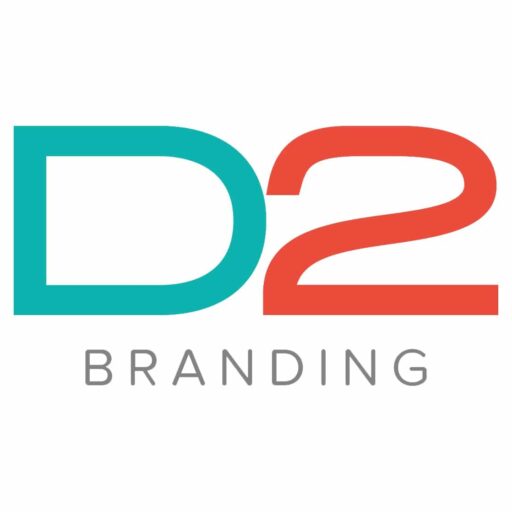Search Engine Optimization (SEO) involves the practice of enhancing both the quantity and quality of website traffic while exposing your brand through organic or non-paid results of search engines. Generally, it is necessary to be aware of what people might be searching on the internet, what they seek to know, the kind of words used and the content type they want to consume. Being aware of all this information enables you to easily connect with the individuals who are actively online seeking the solutions you might be able to provide. Suppose your audience’s intention lies on one side of the search engine optimization coin, providing it in a certain way. In that case, crawlers of a search engine can therefore locate and understand is the other side of the SEO coin. In other words, SEO simply implies the process of modifying your site to promote its level of visibility for people who are searching for goods or services associated with your business in Bing, Google, among other search engines. The more visible a page has in search results, the more chances of gaining increased attention and attracting existing and prospective clients towards your business.
How does Search Engine Optimization work?
Search Engine Optimization is usually about creating small modifications on areas of your website. When searched as an individual, such changes can look like incremental improvements. Still, when put together alongside other optimizations, a significant impact can be noticed on your site user experience and improved performance in the non-paid search results. Search engines like Bing and Google apply bots in crawling web pages moving from one site to another, gathering information concerning those pages and inserting them in an index. Talk of an index such as an extensive library whereby a librarian has information details of every single book or, say, a web page and thus can assist you in locating precisely what you are seeking to find at that particular time you are browsing.
Algorithms are used to analyze web pages within the index, considering hundreds of ranking signals or factors to establish the order of pages and how they are supposed to appear in a search result for a certain inquiry. Still applying the analogy of a library, a librarian is aware of every book and thus knows which book can best address your questions. This system works the same way.
Basics of Search Engines
Generally, search engines are considered answer machines. They analyze billions of information pieces and assess thousands of factors to establish the right content that is likely to address a given query. All this is enabled through establishing and cataloguing most of the readily available information on the internet’s such as the web pages, images, PDFs, videos, among others, through a procedure commonly referred to as “crawling and indexing,” then dictating it depending on how good it fits the query raised in a procedure known as “ranking.”
Organic Search results
Organic search results comprise those search results earned using effective search engine optimization such as not advertising. Such results used to be easily visible since the ads used to be labelled clearly, while the rest of the results primarily adopted the kind of “10 blue links” displayed below them. However, things are different in the modern era. Today, the resultant search engine pages commonly known as “SERPs” are full of both ads and additional dynamic organic results forms known as “SERP features.” A number of factors are considered by a search engine algorithm when deciding the kind of information to display in the SERP. This includes the historical performance of a specific listing such as bounce rates and clicks, link quality, geographical location of the person searching, webpage content (tags, keywords. pictures), link type (links from media outlets, sharing of social media and blog) and webpage HTML or back-end code.
Ranking on search engines
Getting your website to index and rank is not so difficult within the search engines. However, having a website ranked for unique keywords can prove to be problematic. Generally, there are three key elements that a search engine takes into account while establishing where a website can be listed within the SERP. The three factors include authority, rank and relevance.
Rank
Includes the position where a website falls under the SERP whenever a certain search inquiry is made. If you are on the top page within the organic section of SERP, the ranking automatically becomes the first one; if second, it becomes two and so on.
Authority
Search engine optimization establishes the degree of authority and credibility of website information through calculations of inbound links (other website links). Unfortunately, the frequency of inbound links does not merely imply it correlates with higher rankings. It also considers the degree of authority attached to your website, the link attached to the website, the anchor content applied to link to a website, and other factors such as the hold old your domain is.
Relevance
Is among the most important aspects of SEO. Search engines look at certain keywords used and look at the clues to establish the degree of relevance of your information attached to a certain search inquiry. Apart from the actual content on the web pages, the SEO assess the website’s structure, how keywords have been used in URLs, formatting of the page and the headline keywords used on the web page against those used on the body text. As much as there is no means of tracking the degree of relevance a website is, there are certain basics of SEO that can be practiced to take care of the bases and ensure that the search engines are given possible chances of taking into account your web pages whenever a search inquiry is made.
Importance of a visible website on a brand
Generally, Search Engine Optimization is essential for increased visibility and searchability but provides additional value. Today most modern businesses have made SEO their main tool of driving their brand to the next level. This is because they are aware of the power of SEO in their digital properties and the potential benefits they are bound to reap from search engine capabilities. Therefore, SEO is responsible for improving the general visibility and searchability of a company website. However, that is not the real value it offers. Marketers are aware that Google takes a larger part of the search market, approximately 75%. Therefore, Google plays an important role in making a company or business web page visible, thus working in favor of your brand. Quality SEO and high-end quality websites improve the brand image of the business. Therefore, SEO makes a visible website to form a strong foundation where online searchers can easily access the business brand, thus adding value to the company.
The benefit of ranking highly for keywords
Because top-ranking positions create significant impressions, being able to have your website among the top-ranking positions based on result pages implies that your website is more exposed. Being in the top position on the page of targeted keywords enables the users to get in touch with your brand using those keywords easily. It also creates trust because businesses on the first page are often viewed as the most trustworthy companies, and online users will easily do business with such companies.
Therefore, a ranking based on keywords is of great importance to a business website SEO as it increases the visibility of the company website. The more a website page and content are ranked in high positions with search engine optimization, the more chances of attracting more users to view your content information and relate to your brand.

Common practices of Search Engine Optimization
Common practices involve a series of activities designed to assist in improving the search engine rankings of a website. The most common search engine optimization (SEO) practices involve researching keywords, on-site optimization and building backlinks on a site. Many practices can be done to achieve a higher ranking on Google, including advanced SEO techniques and strategies. Among the basic common practices includes adding keywords on the web content. This can be done several times since the SEO exerts more weight on the terms appearing on top of the web page. Another common practice is writing up unique content, titles, and descriptions while avoiding the duplication of your content or close duplicate content on your site. It is therefore important to ensure that the published content is 100% unique. Optimization of your title tag for search engine optimization is paramount, especially when it comes to on-page SEO.
Google recommends that it is very important to apply high-quality titles on a web page. This is done through front-loading of the main keywords, beginning the title tag with a targeted keyword. This is of significant importance because SEO is attentive to the terms applied in a title tag. Finally, optimizing the site loading speed is also of great importance since Google does not publicly give information concerning the ranking factors within its algorithm. Therefore, when talking of a particular ranking signal, site loading speed becomes an important ranking factor that should be considered standard practice. It is also a common practice to keep track of your results with the SEO console.
On-site and off-site strategies
Generally, on-site search engine optimization involves what an individual does to a website to make it simple for the search engine to locate. In contrast, off-site search engine optimization involves an individual’s activities on the site apart from advertising. On-site strategies are instrumental in realizing higher rankings in a SE organic result and managing a successful SEO campaign. Some of the techniques include Meta descriptions and optimization of page titles, optimization of page content, formatting of headings and content, publication of high-quality content, optimization of the URL, search engine pictures and other multimedia elements, loading speed of a page, internal & external links and mobile-friendliness. Among the off-site strategies include building and chasing quality links. The glossary terms of, Search Engine Optimization include NoFollow as an essential characteristic of a webmaster that can be applied while linking a web page that shows search engines. This strategy is a well-known marketing technique applied by marketing professionals across the globe. Another common technique is harnessing social media power since social signals are considered while ranking a web page. Blog commenting is another attribute that defines contributing reasons in a particular manner right from the beginning. It is an effective SEO off-site strategy that attracts organic traffic to a SERP ranking and a web page.
Contemporary Google policies
Like any other policy, Google keeps on improving and updating its policies. The new google policies are concerned with privacy issues. It announced that the “privacy sandbox” will imply that third-party advertisement sellers will be required to use Google to obtain information concerning internet users. However, critics argue that this is beneficial since it renders the market less safe and fair. This has therefore attracted a key problem from a competition point of view.
What to do and what not to do
Search Engine Optimization is a complicated world with so much information to remember all the time. Therefore, it is important to be aware of what to do and what not to do concerning SEO. Among the things not to do includes inserting all the keywords on a single page, do not consolidate keywords that are of relevance on the page, do not create Metadata Description representative on a piece of single-page information, do not overlook the negative reviews, do not panic if your rankings suddenly drop and do not engage in the stuffing of keywords or unnatural phrasing. Among the does of SEO includes having other web pages linked to your website, create a relevant social media page. Create and verify your business Goggle+ page. All these are important to consider when interacting with Search Engine Optimization.
The above analysis shows that Search Engine Optimization (SEO) has enabled rapid digitalization across the world, where most businesses have gained much from using SEO in creating and building their brand image. It has become a critical marketing tool that has proved to be very effective in the digital world.

D2 Branding provides exceptional search engine optimization services in Tulsa, Oklahoma and the surrounding areas. For a complimentary 15-minute marketing consultation with D2 Branding in Tulsa, call us today at (918) 520-8012.
